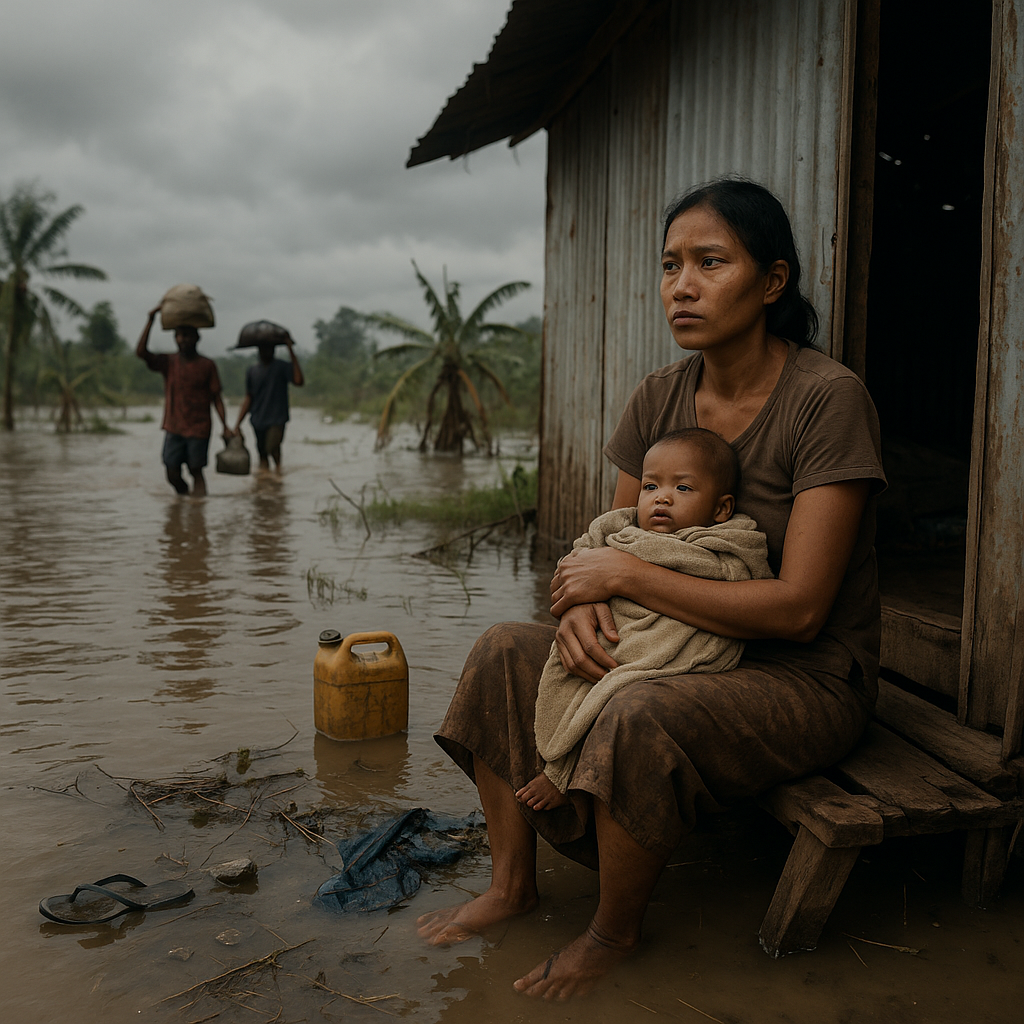UN Task Force Advances Social and Solidarity Economy to Tackle Global Poverty
“More should be done to expand the imagination of policymakers to make it possible to achieve real social progress without depending on infinite GDP growth,” said Olivier De Schutter.

As the world confronts a deepening development crisis—with only 35% of Sustainable Development Goals (SDGs) on track and inequalities on the rise—the United Nations Inter-Agency Task Force on the Social and Solidarity Economy (UNTFSSE) has been called upon to help shape a bold new vision for eradicating poverty. At its 53rd Regular Meeting, the Task Force was invited by Olivier De Schutter, UN Special Rapporteur on Extreme Poverty and Human Rights, to play a leading role in the development of a groundbreaking Roadmap for Eradicating Poverty Beyond Growth.
This invitation comes amid what UN Secretary-General António Guterres has termed a “global development emergency”, as prevailing economic models—centered on GDP growth—struggle to address systemic inequalities, environmental degradation, and social exclusion. The roadmap, to be formally presented to the UN Human Rights Council in 2026, aims to reframe development around human rights, economic democracy, and ecological sustainability, with the Social and Solidarity Economy (SSE) at its core.
Reimagining Development: From Profit to People
The Roadmap for Eradicating Poverty Beyond Growth stems from the Special Rapporteur’s 2024 report, Eradicating Poverty Beyond Growth, which challenged the overreliance on market-centric and growth-driven approaches. It identified the stimulation of the SSE as the first policy priority in transitioning from a profit-driven economy to a human rights-based economy.
“More should be done to expand the imagination of policymakers to make it possible to achieve real social progress without depending on infinite GDP growth,” said Olivier De Schutter. “At the heart of this agenda is the social and solidarity economy.”
The new roadmap identifies five key policy areas where the SSE can offer transformative solutions:
-
Access to Social Protection and Essential Services
-
Labour Policies and the Care Economy
-
Transformation of Economic Systems
-
Climate, Environment and Resource Justice
-
Trade, Finance, Debt, and Global Solidarity
Each area emphasizes economic inclusion, democratic governance, and sustainability over extractive and unequal models of growth.
UNTFSSE to Lead Global Collaboration on SSE and Rights-Based Development
The UN Inter-Agency Task Force on SSE, comprising over 30 UN agencies, intergovernmental bodies, and civil society organizations, welcomed the invitation. Simel Esim, Head of the ILO’s Cooperative, Social and Solidarity Economy Unit and Chair of the Task Force, emphasized the readiness of the group to contribute substantively to the roadmap.
“We are enthusiastic about this opportunity to further align the SSE with global human rights and development goals,” said Esim. “The Technical Symposium in December will be a key moment to define our next strategic steps and explore synergies with the roadmap.”
The Technical Symposium—scheduled for 4–5 December 2025 in Murcia, Spain—is co-organized with the Spanish Ministry of Labour and Social Economy, CEPES (Spanish Business Confederation of the Social Economy), and the Council of Government of the Region of Murcia. It will gather researchers, policy makers, practitioners, and representatives of SSE organizations to assess how the SSE can operationalize the human rights economy.
Momentum Builds for SSE in Global Policy Arenas
The meeting also reviewed several significant advocacy successes for the SSE movement in recent multilateral fora. These include:
-
The formal inclusion of SSE in the Financing for Development (FfD) outcome document
-
Recognition of SSE in the High-Level Political Forum (HLPF) on Sustainable Development
-
Ongoing efforts to reference SSE in the draft political declaration for the 2025 World Social Summit, to be held in Qatar
Konstantinos Papadakis of UN DESA briefed participants on the summit’s progress and welcomed contributions from UNTFSSE members to strengthen the visibility and policy coherence of the SSE in international development frameworks.
Research and Practice: Bridging the Gap
The meeting featured a forward-looking exchange on emerging topics in SSE research. Moderated by representatives from CIRIEC, EMES, and EURICSE, the discussion explored:
-
The role of SSE in the informal economy
-
Economic democracy and cooperative governance
-
SSE responses to the climate emergency and environmental degradation
-
The resilience of SSE models in crisis situations and conflict settings
Participants also brainstormed ways to enhance the interface between research, policy, and implementation, ensuring that innovative SSE solutions are evidence-based and scalable.
SSE: A Viable Alternative in the Face of Crisis
With widening wealth gaps, ecological pressures, and disillusionment with traditional market economics, the SSE is gaining prominence as a credible and inclusive alternative. Rooted in solidarity, participation, and sustainability, SSE entities—such as cooperatives, mutuals, social enterprises, and grassroots networks—have shown the ability to deliver social goods, create quality jobs, and strengthen community resilience.
By embedding these principles in global economic governance and policy design, the Roadmap for Eradicating Poverty Beyond Growth may help shift the paradigm toward a people- and planet-centered model of development.
As the world prepares for the Second World Summit for Social Development, set against the backdrop of multiple crises, the call to rethink development models has never been more urgent. The UNTFSSE is poised to play a key role in co-constructing a just transition, ensuring that economic progress does not come at the expense of human rights, dignity, and the planet.
ALSO READ
UN Expert Applauds Court Ruling Linking Climate Justice to Prisoner Rights
Cambodia Launches M&E Framework to Boost Informal Economy Formalization
In hard-hitting human rights address, Guterres calls for urgent action on Gaza, authoritarianism and climate justice
ICJ's Landmark Climate Opinion: Legal Obligations Reinforce India's Climate Justice Calls










